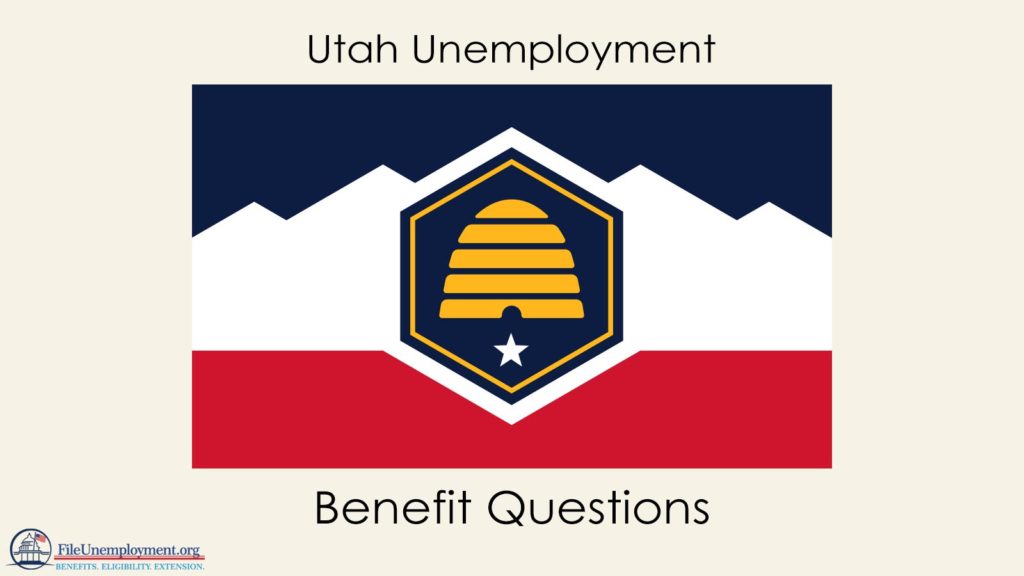
Claiming Utah Unemployment benefits can sometimes be complex. Here are some of the most common questions people have while going through the process:
How do I file a claim for unemployment benefits in Utah?
If you are unemployed and meet the state’s eligibility requirements, you can easily file a claim online. It takes about 30 minutes to apply for Utah unemployment benefits. Be prepared to go through the identity verification process, and submit your contact information and employment history.
How much is unemployment in Utah?
Your benefit amount is based on your earnings and employment history. The maximum weekly benefit amount (WBA) you can earn is $712 per week, and the total maximum benefit amount (MBA) is $18,512. These numbers are subject to change each year.
You can estimate the benefit amount you may be eligible for by using the Utah unemployment calculator.
How long does Utah unemployment take to process?
It can take up to four weeks to process your initial application for unemployment benefits. Utah does not pay for the first week of unemployment eligibility. This is known as the “waiting week.” You are required to submit a weekly claim for benefits during the waiting week to maintain eligibility for future benefits.
How do I check the status of my claim in Utah?
You can check the status of your unemployment claim by logging into the state’s online unemployment portal at https://id.utah.gov/login.
If you have not heard back on a claim within four weeks, you will need to get in touch with the Claims Assistance and Re-employment Team in the county you live in.
How do you contact Utah unemployment?
If you have a question about your application or weekly claim, you will need to call the Utah Division of Workforce Services’ Claims Assistance and Re-employment Team. If you need assistance with finding new employment, you can visit your local employment center.
Can I file an unemployment claim with another state?
If you worked for employers outside the state of Utah during your base period, and the majority of your wages were earned through that employer, you will need to file an unemployment claim in the state where the employer is located.
If you have wages from multiple states, you can request a combined wage claim and receive benefits from multiple states.
What happens if I lie to get unemployment benefits in Utah?
If you receive benefits by submitting false information and committing unemployment fraud, you may be subject to penalties that range from repayment of benefits and fees, a denial of future benefits, and possibly criminal prosecution.
Who pays for Utah Unemployment Insurance?
Utah Unemployment Insurance benefits are paid by a trust fund that is backed by Utah employers. It does not come out of your paycheck.
Will a part time job affect my benefit amount?
Any income you earn during a particular week must be reported while filing the claim for that week. As per the rules, an income of up to 30% of the benefit amount will does not affect your benefit amount. This means that you will receive your full benefit amount if your earned an amount that is less than or equal to 30% of your WBR.
However, if you earn an amount that is equal to or greater than your allotted Weekly Benefit Amount you may not receive any benefits that week.
When can I expect to receive my first payment?
It can take up to four weeks to resolve any open issues and determine your eligibility. You will receive notification or payment once those issues have been resolved. The first eligible week of your claim is a non-payable waiting week.
If you have a current claim with issues, click here to login and view the status of the issue(s). Choose “Issues Preventing Payment”.
Are unemployment benefit amounts subject to taxes?
Yes. Benefit amounts earned in connection with unemployment insurance are subject to Utah state taxes and Federal taxes. You do have the option to withhold taxes from your benefit amounts – 10% for Federal taxes and 5% for Utah state income taxes.
What happens if information is not reported accurately?
Failure to report information accurately can cause overpayment of benefits. Knowingly or carelessly misreporting any information, including earnings, constitutes fraud. If you commit fraud, you will be subject to repayment of benefits up to twice the overpayment amount, disqualification, severe fines, and possible prosecution.
What should a claimant do when he lands a full time job?
Simple. Stop filing weekly claims. The moment you stop filing for weekly claims, you will be discontinued from weekly benefits. If you don’t stop filing for claims even after you secure a job, you may end up being overpaid. It is an offence to file for benefits even after you get a job, this could land you in trouble. Avoid doing this at all costs. Stop filing for weekly benefits as soon as you get a job.
Note: You must reopen your claim in order to receive benefits if your claim is closed.





Comments are closed.